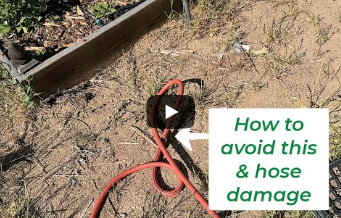Guide to starting seeds inside
Gardeners know the thrill of watching a seed sprout and grow into a flourishing plant. For many, the journey begins even before the warm weather arrives, right inside their homes. Starting seeds indoors can be a rewarding endeavor that ensures a head start on the gardening season. In this comprehensive guide, we’ll walk you through the process of sowing seeds indoors to give your garden the best possible beginning, and share best practices from our experience running our flower farm..
Why Start Seeds Indoors?
Sowing seeds indoors offers multiple benefits:
- Extended Growing Season Get a jumpstart on the season by starting early, especially beneficial for regions with short growing periods.
- Economical Choice Buying seed packets can be more cost-effective than young plants from nurseries.
- Variety Access to a broader selection of plant varieties not readily available as starter plants.
Essential Supplies for Starting Seeds Indoors
Before you begin, gather the necessary supplies:
- Seed packets of your choice
- Seed starting mix (lightweight and sterile)
- Containers or seed trays with drainage holes
- Plastic domes or plastic wrap
- Grow lights or a sunny window
- Watering can or mister
- Thermometer and humidity gauge
Steps to Sow Seeds Indoors Successfully
1. Choosing the Right Seeds
Research the plants you wish to grow. Some seeds germinate best when sown directly outdoors, while others benefit from an indoor start. Make sure you buy high quality seeds to start, otherwise you may not get the results you want. See our Buying Seeds for Planting Guide.
2. Preparing Seed Containers
Fill your chosen containers with a damp seed starting mix. Avoid garden soil as it can contain diseases and may not provide adequate aeration.
3. Planting the Seeds
Refer to the seed packet for specific depth and spacing guidelines. As a general rule, plant seeds at a depth of two to three times their width. Gently press the seeds into the mix and cover them lightly.
4. Providing the Right Environment
- Moisture: Seeds need consistent moisture to germinate. Cover the containers with a plastic dome or wrap to maintain humidity.
- Temperature: Most seeds prefer a temperature range of 65-75°F. Heating mats can help maintain this range.
- Light: Once seeds sprout, they require ample light. A south-facing window or grow lights can ensure they receive enough light hours. A garden meter can help you in making sure the environment is right for seed growth: Garden Moisture Meter.
5. Monitoring Growth
Check seeds daily. Once they sprout, remove the plastic covering. Ensure they receive adequate light and turn the containers occasionally to prevent seedlings from leaning towards the light source.
6. Transplanting and Hardening Off
When seedlings have at least two sets of true leaves and the outside temperatures are favorable, it’s time to prepare them for transplanting. Start by “hardening off” – acclimatizing them to outdoor conditions. Initially, place them outside in a sheltered area for a few hours, gradually increasing the time over a week.
Common Challenges and Solutions
- Leggy Seedlings: Indicates insufficient light. Solution: Move to a brighter location or use grow lights.
- Damping Off: A fungal disease that affects the base of seedlings. Solution: Use sterile mix and avoid overwatering.
- Poor Germination: Seeds may be old or not stored correctly. Solution: Always check seed viability before planting.
Tips for Success
- Labeling: With multiple varieties, it’s easy to forget what’s planted where. Always label your containers.
- Bottom Watering: To prevent seed displacement, water from the bottom by placing containers in a tray filled with water.
- Thinning: If too many seedlings sprout close together, thin them out to allow ample growth space.
Conclusion
Starting seeds indoors can set the stage for a thriving garden. With patience, care, and attention to detail, you can nurture seeds into robust plants ready for transplanting. Embrace this fulfilling journey and witness the magic of growth right from your home.
More Links:
Starting and Growing Seeds Indoors – UC Davis
Buying and Starting Seeds Indoors – UNM
Recent Posts

The Ultimate Guide to Philodendron Birkin – Care, Tips, and Benefits

Watering Plants – Indoor Edition

The Advantages of Built-Up Garden Beds: A Gardener’s Best Friend

The Secret Weapon for Lush Blooms: How to Create the Perfect Fertilizer Schedule

Create a Stunning Cottage Garden with These Easy-to-Grow Flowers












